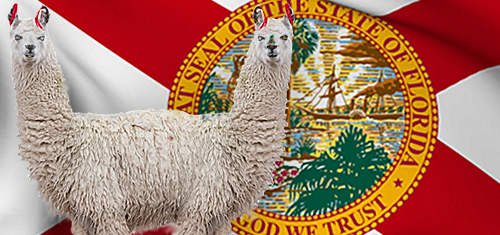 Florida legislators appear to have failed in their latest effort to approve gambling measures – including the Seminole Tribe’s new $3b gaming compact – after a key Senate committee decided not to bring the matters up for a vote.
Florida legislators appear to have failed in their latest effort to approve gambling measures – including the Seminole Tribe’s new $3b gaming compact – after a key Senate committee decided not to bring the matters up for a vote.
The Florida legislature is set to wrap up its work for the year on March 11 and hopes were high that the 20-year compact Gov. Rick Scott worked out with the Seminoles in December was in the bag. But additional last minute proposals put forward by the House Finance & Tax Committee on Monday proved a bridge too far for Senate leaders, who tabled the bills on Tuesday.
Senate leaders told local media that the bills stood a faint chance of being revived at the next meeting of the Senate Appropriations Committee on Thursday. But doing so would be the responsibility of Sen. Rob Bradley, the sponsor of the bill that would have ratified the Seminole compact, and Bradley told the Miami Herald that he’d be “very, very surprised if we saw any action on this issue this session.”
Bradley said the bills became too overstuffed with gaming options – including approving slots operations in five additional counties, allowing horseracing tracks with slots and card rooms to scrap their live racing operations, and requiring voter referendums on any future gaming expansion — to find sufficient support for passage. Bradley characterized the House committee’s surprise 122-page gambling proposal as “too many ornaments added to the tree.”
The snafu also likely put a temporary freeze on the state’s efforts to regulate daily fantasy sports operations. The DFS legislative efforts had been bundled into the Seminole compact over fears that the tribe could have cited a standalone DFS bill as an expansion of gambling that violated the terms of its new compact.
If Bradley fails to revive his bill on Thursday, legislators will have to wait until 2017 to reconsider the proposals. In the meantime, the Seminoles continue to make monthly payments of around $100m under the terms of the old, expired compact, which allowed the tribe the exclusive right to operate slots outside of Miami-Dade and Broward counties.
The Seminoles had also enjoyed the exclusive right to offer house-banked card games like blackjack, but that deal expired last July. The state and the tribe are currently embroiled in a federal lawsuit over the tribe’s right to continue offering the card games, a fight that will likely reach a resolution before the new compact can be approved.
The new gaming compact would have allowed the Seminoles the exclusive right to offer craps and roulette games at their casino operations. In exchange, the tribe agreed to allow limited slots expansion by other operators in two counties and to make guaranteed payments to the state of at least $3b over the compact’s initial seven-year period. All of which now appears moot for another year.






